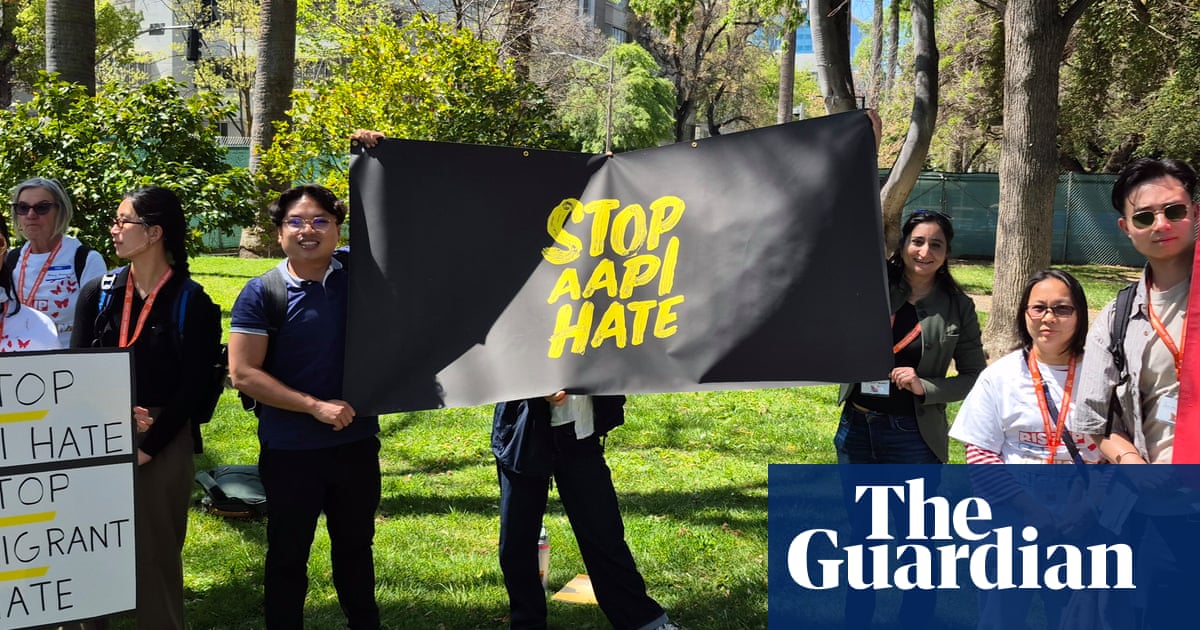Rising Hate Against Asian Americans and Pacific Islanders in 2024
In 2024, Asian Americans and Pacific Islanders (AAPI) encountered alarming levels of hate, according to a recently released report by Stop AAPI Hate. Shared exclusively with the Guardian, the findings detail the chilling effects of a divisive presidential election year marked by historic representation and harmful anti-immigrant rhetoric. The survey highlights how this environment has fostered fear and insecurity within AAPI communities.
Survey Findings
The coalition conducted its second annual survey in collaboration with Norc at the University of Chicago, revealing that 53% of respondents reported experiencing a race-based hate incident in 2024, a slight increase from 49% in 2023. These incidents varied widely, from bullying in schools and discrimination at workplaces to harassment and physical violence. Alarmingly, four out of ten individuals who faced hate did not share their experiences with anyone, including friends or family, while two-thirds of those encountering potentially unlawful hate acts chose not to report them to authorities. Reasons for this silence included feelings that the incidents were not significant enough or doubts about whether reporting would lead to any meaningful change.
Legislative Awareness and Responsibility
Grace Meng, a Democratic representative from New York and chair of the Congressional Asian Pacific American Caucus, emphasized the importance of the report in revealing data gaps that hinder government leaders from taking decisive action against anti-Asian hate. While public awareness of such bigotry surged during the COVID-19 pandemic, Meng noted a troubling resurgence of open expressions of hate following the recent general election. With many respondents expressing concerns about the social and racial climate, Meng’s worries are indicative of broader societal anxieties about rising anti-immigrant sentiment.
The Impact of Political Rhetoric
Just a few months into Donald Trump’s second term, Meng has observed a wave of anti-immigrant actions, including the revocation of Chinese students’ visas and cuts to funding that support marginalized communities. She foresees that the administration’s rhetoric will likely fuel more anti-Asian hate this year. The survey, conducted right before Trump’s inauguration, reflects an AAPI community deeply apprehensive about its future and safety.
Testimonies of Hate
Stephanie Chan, director of data and research at Stop AAPI Hate, noted that the cycle of hate appears to be propelled by Trump’s campaign comments, resonating through daily life. Incidents reported to the center include disturbing encounters, such as a schoolgirl receiving a note with derogatory messages about her ethnicity and a woman in Washington state being subjected to mocking remarks. The feeling of vulnerability is palpable among Asian Americans as individuals report threats of deportation during confrontations, intensifying the atmosphere of fear.
The Backlash Against Prominence
With figures like Kamala Harris and Usha Vance gaining prominence, some south Asian communities have found themselves in the crosshairs of a backlash against their increased visibility in society. Chan remarks that the perception of south Asians “taking over” has led to heightened tensions and hostility, complicating an already fraught landscape for AAPI individuals.
Legal Challenges and Support
In response to the challenges facing AAPI communities, Stop AAPI Hate and other organizations have taken steps to file a class-action lawsuit against the Justice Department. This legal action addresses the alleged unlawful termination of over $810 million in public safety grants that previously supported vital community services. The loss of these resources, including a $2 million grant directed toward violence prevention, underscores the significant risks faced by organizations working to combat hate and discrimination.
Optimism Amid Adversity
Despite the bleak findings, there are glimmers of hope. The survey revealed that 82% of respondents were optimistic about their community’s ability to combat racism. Many reported participating in activities aimed at resisting hate, emphasizing a shared commitment to cross-racial solidarity. The determination to collectively challenge injustice is palpable, with community leaders like Cynthia Choi remaining steadfast in their belief that organized action is essential.
The Urgency for Collective Action
Choi expressed the urgent need for united efforts against the threats posed by anti-immigrant policies and sentiments. The fear of losing hard-won rights and the dangers of a fragile democracy linger in the minds of many. Historical precedents warn of the fragility of democratic ideals and the potential consequences of silence in the face of tyranny.
In light of the findings from Stop AAPI Hate, the ongoing discourse around race and identity remains critical. As the AAPI community grapples with increasing acts of hate, the call for solidarity, awareness, and action has never been more urgent.


